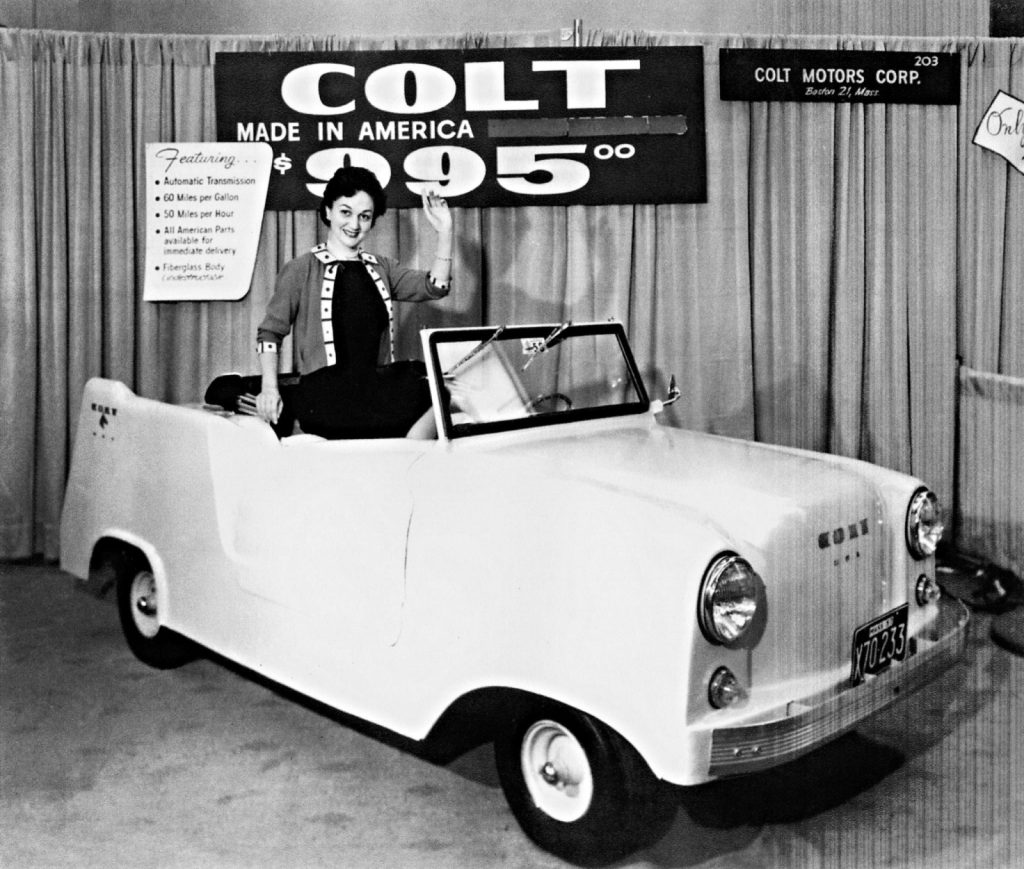This is the story of one of the many failed attempts to produce an affordable vehicle for local commuting. The attempt was made by Colt Motors Corp. of Boston, Massachusetts, and featured a single-cylinder, air-cooled engine with a price tag of $995.
The Colt, a product of Colt Motors in Boston, Massachusetts, remains largely a mystery. It seemed to come and go rather quickly, but the little information available suggests that it was a fascinating idea. The Colt was a compact two-seater convertible with a retractable soft top. The original plan was for a local boat builder to produce the fibreglass bodies as a single unit. Colt Motors Corp. would then cut out the doors and complete the assembly of the car in a hat factory owned by a company director.
The entire construction process was aimed at achieving a lightweight design, resulting in a vehicle that weighed approximately 700 pounds. This lightness was crucial given the Colt’s power source: a 23-cubic-inch, air-cooled, single-cylinder Wisconsin gasoline engine. This engine was reportedly mated to an automatic transmission, probably a simple centrifugal clutch setup. Despite its small size, the Colt was said to be capable of speeds of up to 50 mph and an impressive fuel economy of up to 60 mpg. It was also reported that all components used in the production of the Colt were made in America.
In any case, Colt Motors launched its new car with a sticker price of just $995. This was more expensive than the compact King Midget of that year, but the Colt’s more car-like aesthetics might have justified the price increase. To put it in perspective, the most affordable US car in 1958, excluding the King Midget, was the Rambler American at $1,789.
According to one researcher, Colt Motors’ plan to produce a small car was thwarted when it failed to negotiate a deal with Midget Motors. The deal involved the purchase of the required chassis at a wholesale price, which would have enabled Colt Motors to sell the car profitably at the expected retail price of $995. The inability to secure this deal led to the cancellation of production plans as Colt Motors lacked the funds to design and build its own chassis.



You must be logged in to post a comment Login